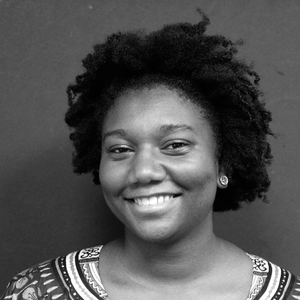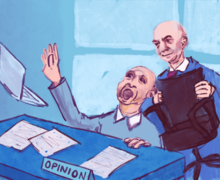Crockett: Influential women have power, platform to counter ‘catfight’ culture
Feminism has a rhythm all on its own.
British pop singer Charli XCX, best known for collaborating with Australian rapper Iggy Azalea in “Fancy,” spoke with Billboard at the MTV EMAs in Milan last week about her excitement for Adele’s new album and the importance of women in the industry building each other up.
“There are so many amazing females in the music industry right now … I feel very supportive of the females around me and I think that’s really integral to what I do,” she told Billboard.
Like Charli XCX, other women should not shy away from singing the praises of other female artists. Women encouraging one another is an effective way to dismiss the media’s desire to create feuds and sensationalism. This kind of feminism inspires other women to acknowledge and support one another in any industry or environment where they’d be expected to be one another’s competition.
It seems impossible nowadays to not hear about the latest feuds between women in the music industry. Whether it’s Taylor Swift and Katy Perry or Nicki Minaj and Miley Cyrus, popular and social media capitalize on the “catfight” mentality between female artists and often blow facts out of proportion for the sake of clickbait and viewership.
Negative media and attention only fuels the stereotype that women cannot get along, and TV shows including “Bad Girls Club,” “Real Housewives” or “Jersey Shore” further confirm this idea. A major theme in these shows is pitting women against each other, typically over a man or another trivial issue. Constant intake of these representations only perpetuates the notion that women can either be the closest of friends or the worst of enemies.
There is even a subtle element of sexualizing these women as they are fighting. In many scenes, the women are scantily clad and physically attacking each other while onlookers both on screen and at home watch in hopes of seeing more skin exposed.
The “catfight” mentality, whether it is intentional from the actual women, or provoked by managers, directors or anyone who is in charge of these women’s images, is a harmful phenomenon that encourages women to tear down one another for the benefit of onlookers.
It is for this very reason that Charli’s actions are so important. Not only has she uplifted Adele, but she has also often spoken highly of other female artists.
Charli has strong opinions about feminism in the music industry. In an interview in 2014 with Complex magazine, she recognized that “feminist” was a hot word that year and hoped for feminism to remain a strong theme with the help of other high-profile female artists moving forward.
But the term feminist is often misunderstood by people in and outside of the industry. Kelly Clarkson considered the term too strong for her. Lady Gaga was once quoted as saying she wasn’t one, but then later admitted to being “a little bit” of a feminist.
Artists must acknowledge that the freedom to choose is actually a core value of feminism. Realizing that each woman should individually decide for herself what role feminist ideas will or won’t play in her life, as long as she is not attacking other women, is a personal choice and should be respected. In this same way, critics must recognize that it is counterintuitive to attack such ideas that wouldn’t allow women agency to decide how to best express themselves.
Gradual change can happen in a male-dominated industry if more women of great influence, whether or not they identify as a feminist, make the decision to not contribute to the “catfight” narrative of women attacking other women.
Elaina Crockett is a senior television, radio and film major and African American studies minor. Her column appears weekly. She can be reached at ekcrocke@syr.edu.
Published on November 1, 2015 at 11:16 pm






